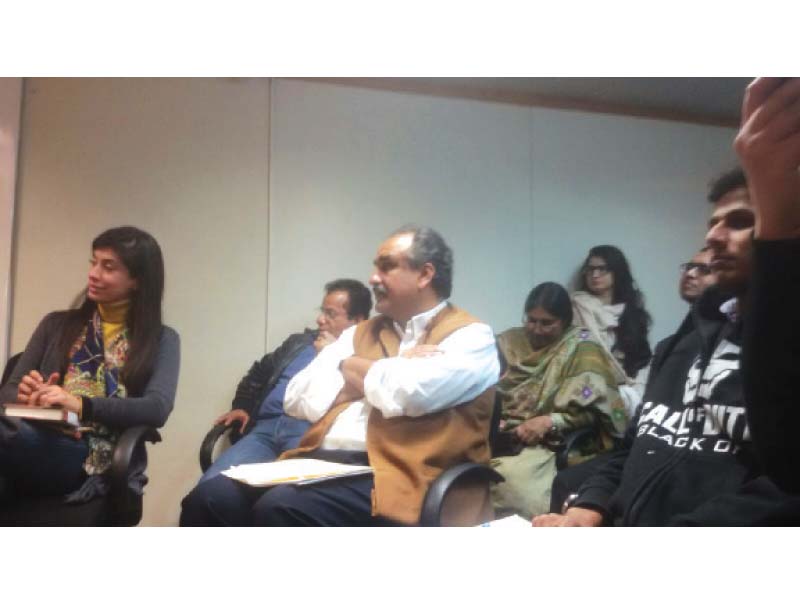
Panellists at the talk had either lived the experiences Ali has written about or had documented it.
Hashmi, commenting on the chapter on her father, said it brought back many memories. She recalled threatening phone calls to her family. “They threatened to gauge out my father’s eyes out if my mother did not confess to the crimes he had been accused of,” she said.
She recalls how her mother would save up gossip to share it with her father on their visits to the Hyderabad Jail and how she scandalised the jailors when she narrated the stories. Earlier, moderator Ammar Ali Jan opened the discussion by saying the failure of national institutions was not the worst thing about Pakistan. The absence of viable alternative politics, he said, was a greater tragedy.
“Ali’s book provides an insight into what moved so many people to leave the comfort of their homes and band together to struggle for a higher ideal.”
He praised Ali’s effort to record the largely inaudible voices of the Left.
“He gives us a glimpse of the dreams of a progressive Pakistan but also dares us to imagine a future of progressive politics,” he said. Environmental scientist Anis Alam said Pakistan had become a victim of capitalism even before it was created.
“The whole world got drawn into a polarisation following the World War II. Half of it plunged into anti-colonial struggles. The other faced an ideological crisis. Capitalism made inroads into new nation states during the USSR vs USA Cold War.”
HRCP general secretary IA Rehman praised Ali for the critical analysis of the communist movement in Pakistan.
“The book will please most diehard leftists. It will annoy some stubborn communists, but no one will dispute the extraordinary effort he has put in in collecting material for the book,” he said.
He thanked Ali for his solid critique of CPP leader Sajjad Zaheer and pointing out some of his errors of judgment.
“Ali also talks about the backlash communists faced from the Pakistani state. The arrest warrants for Sajjad Zaheer had been issued in Pakistan even before he set foot on the soil. What was the communist threat to Pakistan?”
Talking to The Express Tribune, Ali said he had tried to provide an alternative narrative of Pakistan’s early history.
“This study looks beyond the bomb and the burka and the travails of nationalism,” he said. Ali says he thought of his work as a detective story. “At least that’s how I came across some portions of the book,” he said.
Published in The Express Tribune, January 9th, 2016.



1732256278-0/ellen-(1)1732256278-0-165x106.webp)
1725877703-0/Tribune-Pic-(5)1725877703-0-165x106.webp)
1726722687-0/Express-Tribune-Web-(9)1726722687-0-270x192.webp)











COMMENTS
Comments are moderated and generally will be posted if they are on-topic and not abusive.
For more information, please see our Comments FAQ